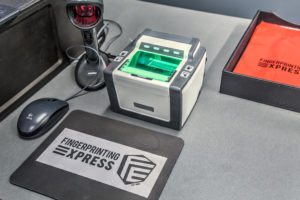Fingerprinting is vastly superior to name-based criminal background checks
 Background checks are mandated by federal and state governments for a wide array of fields — from law enforcement to education, healthcare and transportation, and even volunteering. Anyone seeking employment or licensing in a field that involves the physical welfare of another person may be required to get a criminal background check. Even individuals wanting to travel outside of the US on a work or student Visa will need an FBI fingerprint criminal history background check. Anyone needing his or her background verified to prove identity for legal reasons, similarly, needs a background check.
Background checks are mandated by federal and state governments for a wide array of fields — from law enforcement to education, healthcare and transportation, and even volunteering. Anyone seeking employment or licensing in a field that involves the physical welfare of another person may be required to get a criminal background check. Even individuals wanting to travel outside of the US on a work or student Visa will need an FBI fingerprint criminal history background check. Anyone needing his or her background verified to prove identity for legal reasons, similarly, needs a background check.
The fingerprinting industry is booming, and it will continue to grow in a security-conscious society.





















